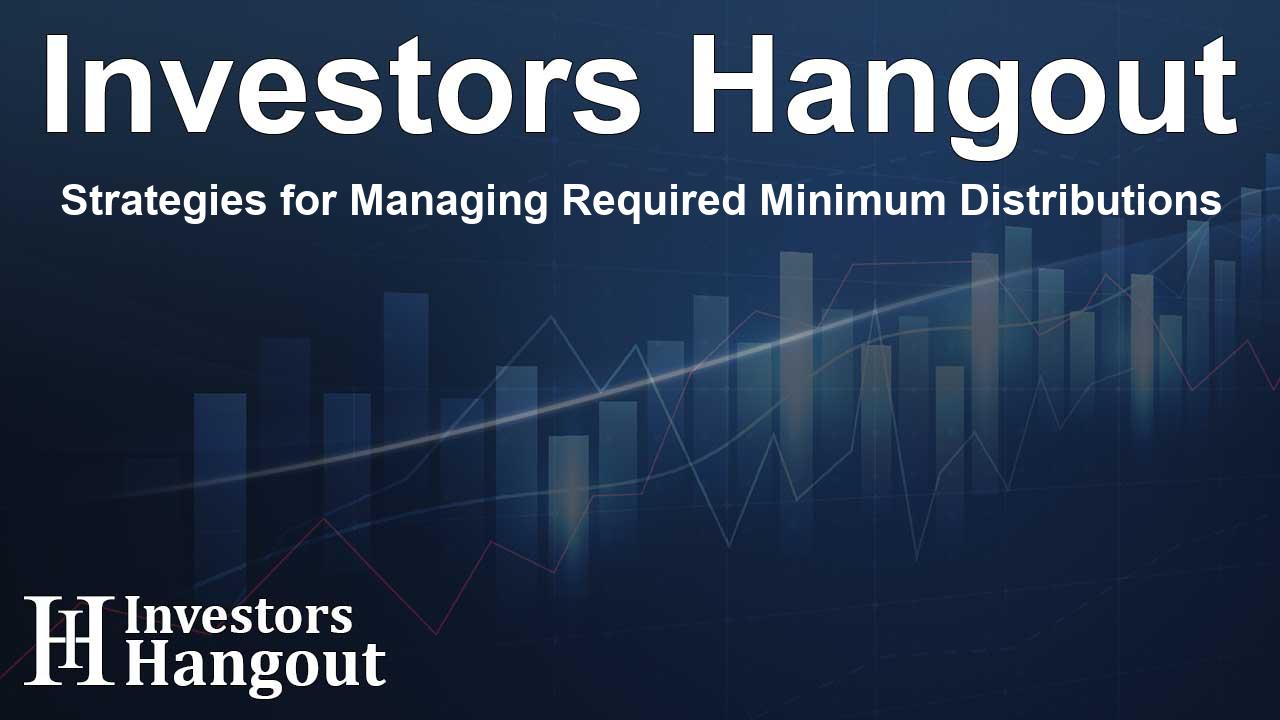Strategies for Managing Required Minimum Distributions

Understanding Required Minimum Distributions
As retirees navigate the complexities of managing their retirement funds, one critical aspect stands out: required minimum distributions (RMDs). These distributions can significantly affect your financial strategy, especially when the market is fluctuating. For many, RMDs represent a forced withdrawal from their savings, often complicating the investment landscape.
Challenges with RMDs in a Down Market
When the stock market takes a dip, like it has recently, the urgency to withdraw funds may compel individuals to sell when prices are low, crystallizing losses. This situation can be particularly challenging if you're faced with an impending RMD. It's essential to approach this scenario thoughtfully to safeguard your financial future.
Psychological Factors to Consider
Investment psychology plays a crucial role in decision-making during market downturns. Panic selling can lead to missed opportunities for recovery. It is vital to keep a level head and consider the long-term trajectory of your investments before making hasty decisions.
Making Strategic Decisions
If you find yourself needing to fulfill an RMD during a market slump, here are a few strategies to keep in mind:
Timing Your First Required Minimum Distribution
Your first RMD typically coincides with the year you turn 72. But good news: you can delay withdrawing funds until as late as April 1 following the year in which you turn 72. This delay might offer the market time to recover, giving you a chance to withdraw funds at a better value.
Understanding Tax Implications
It's crucial to recognize that postponing your first RMD doesn’t exempt you from taking the subsequent year’s distribution. If you opt to delay your 2023 RMD until 2024, you’ll have two distributions to manage that year, which could significantly impact your taxable income.
Exploring In-Kind Distributions
If your goal is to avoid locking in losses, consider taking an in-kind distribution. This means transferring investments directly from your retirement account without selling them first. This strategy allows you to meet the RMD requirements while retaining your investments, which may have the potential to appreciate in value over time.
Executing an In-Kind Distribution
With in-kind distributions, you can move stocks into a taxable brokerage account. While you will still face taxes on any gains and dividends, you won’t have to worry about realizing a loss on a sale. A financial advisor can help navigate this process and determine which investments are best suited for this strategy.
Bottom Line and Next Steps
Frequently Asked Questions
What is a required minimum distribution (RMD)?
An RMD is the minimum amount that must be withdrawn from a retirement account, typically starting at age 72.
Can I delay my first RMD?
Yes, you can delay your first RMD until April 1 of the year following the year you turn 72.
What happens if I miss my RMD deadline?
If you fail to take your RMD, the IRS imposes a hefty penalty equal to 50% of the amount you should have withdrawn but did not.
Are there tax implications with in-kind distributions?
Yes, the value of an in-kind distribution will still be subject to taxes in the year it is made.
How can I minimize losses during a market downturn?
Consider holding investments instead of selling immediately, and consult with a financial advisor for personalized strategies.
About Investors Hangout
Investors Hangout is a leading online stock forum for financial discussion and learning, offering a wide range of free tools and resources. It draws in traders of all levels, who exchange market knowledge, investigate trading tactics, and keep an eye on industry developments in real time. Featuring financial articles, stock message boards, quotes, charts, company profiles, and live news updates. Through cooperative learning and a wealth of informational resources, it helps users from novices creating their first portfolios to experts honing their techniques. Join Investors Hangout today: https://investorshangout.com/
Disclaimer: The content of this article is solely for general informational purposes only; it does not represent legal, financial, or investment advice. Investors Hangout does not offer financial advice; the author is not a licensed financial advisor. Consult a qualified advisor before making any financial or investment decisions based on this article. The author's interpretation of publicly available data shapes the opinions presented here; as a result, they should not be taken as advice to purchase, sell, or hold any securities mentioned or any other investments. The author does not guarantee the accuracy, completeness, or timeliness of any material, providing it "as is." Information and market conditions may change; past performance is not indicative of future outcomes. If any of the material offered here is inaccurate, please contact us for corrections.